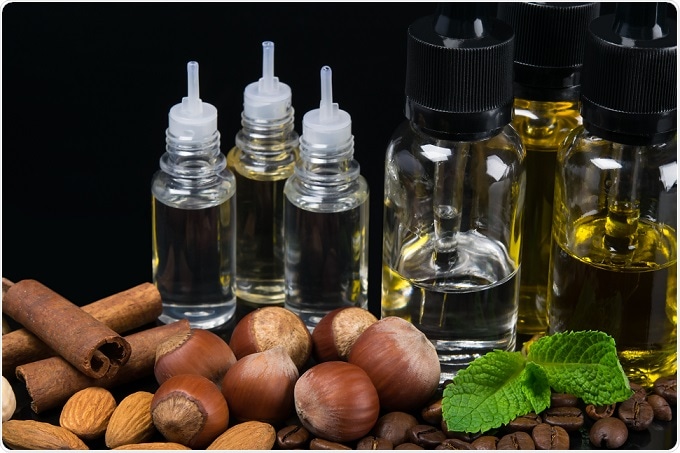The flavorings found in in electronic cigarettes and related tobacco products could cause changes in the lung, heart and blood vessels that lead to cardiovascular disease, according to a study published in an American Heart Association journal.
 © Aleksey Kurguzov/Shutterstock.com
© Aleksey Kurguzov/Shutterstock.com
As reported in the journal Arteriosclerosis, Thrombosis and Vascular Biology, researchers tested nine chemical flavorings commonly found in e-cigarettes, hookah, little cigars and cigarillos for their short-term effects on endothelial cells – the cells lining the inside of blood vessels and the heart.
Lead author Jessica Fetterman (Boston University School of Medicine, Massachusetts) and colleagues report that all nine flavors were dangerous to cells at the highest levels tested and impaired the production of nitric oxide in cultured endothelial cells. Nitric oxide inhibits inflammation and clotting and regulates the widening of blood vessels in response to increased blood flow.
Five of the flavorings, namely menthol, clove, cinnamon, vanillin and burnt flavoring - resulted in higher levels of an inflammatory marker and lower levels of nitric oxide.
Fetterman says the findings suggest that inhaling the flavorings may have serious health consequences:
Increased inflammation and a loss of nitric oxide are some of the first changes to occur leading up to cardiovascular disease and events like heart attacks and stroke, so they are considered early predictors of heart disease."
The research supports previous evidence showing that flavorings induce toxicity in the lung and cardiovascular systems, she adds.
The American Heart Association warns against the use of e-cigarettes. It states that nicotine-containing e-cigarettes are tobacco products that should be subject to all the laws applying to those products. The association calls for robust new regulations to prevent access to the products, as well as their sales and marketing to young people. It also calls for more research into the products’ health impact.